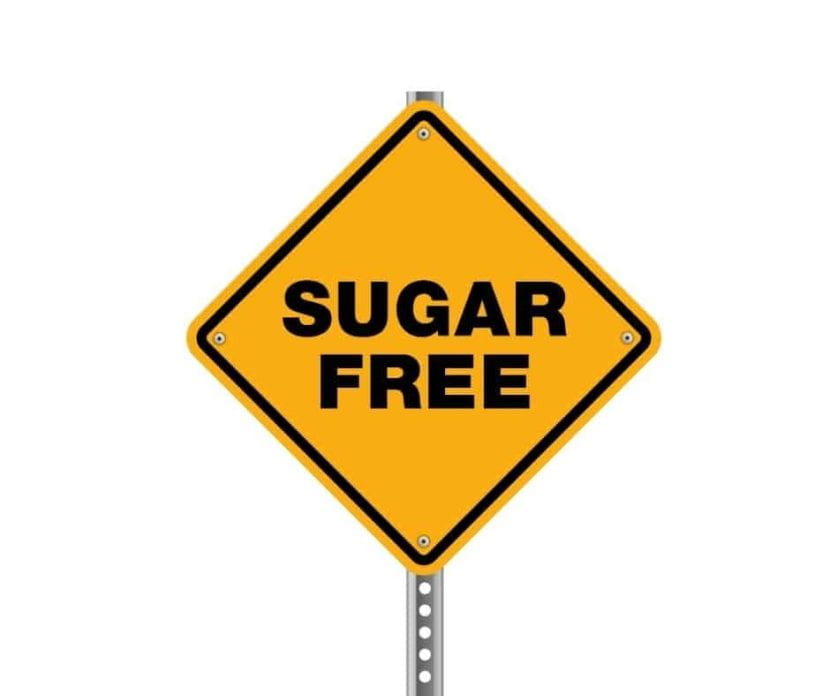Is “sugar free” best for managing diabetes?
The term “sugar free” is often a marketing term that refers to a food product that replaces cane sugar with a substitute such as sucralose, aspartame, and saccharin. According to the Food and Drug Administration (FDA), a food claiming to be sugar free must contain less than 0.5gms of sugar per serving, and there can be 5 or more servings in a package, depending on the size.
Below are federal guidelines for terms used in food labeling related to sugar:
- “Sugar Free”: Less than 0.5 g sugars per RACC (Reference Amount Customarily Consumed…… in other words, serving size) and per labeled serving (or, for meals and main dishes, less than 0.5 g per labeled serving).
- Contains no ingredient that is a sugar or generally understood to contain sugars except as noted below.* may contain trace amounts
- Disclose calorie profile (e.g., “low calorie” or “not a low-calorie food”).
- “No added sugars” and “Without added sugars” are allowed if no sugar or sugar containing ingredient such as jam, jelly, or concentrated fruit juice is added during processing. Must state if the food is not “low” or “reduced calorie.”
Foods that are sugar free include diet soda, diet jelly, diet Jell-O, where the sugar is generally replaced with a sugar substitute – highly processed chemical, or sometimes with a natural sweetener such as Stevia, or monk fruit. Some people find that these artificial or natural sweeteners often have a slightly different flavor or aftertaste.
Other foods that are considered sugar free because they do not contain any sugar naturally are non-starchy vegetables such as spinach, fats such as olive oil, and proteins such as eggs, chicken, and salmon.
For managing blood sugar, it is best to eat meals that are balanced with lean protein, whole grains, and colorful vegetables. Limit prepackaged, processed foods, even if they are labeled as “sugar free”, “no sugar added”, or “diet” as healthy nutrients are lost in the processing along with the sugar.
References:
https://www.ncbi.nlm.nih.gov/books/NBK209851
All Blogs are written by Professionals in the fields of Nutrition, Human Development and Diabetes.
